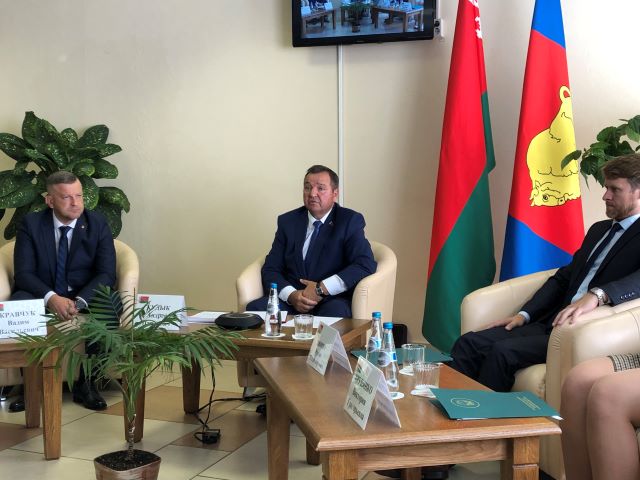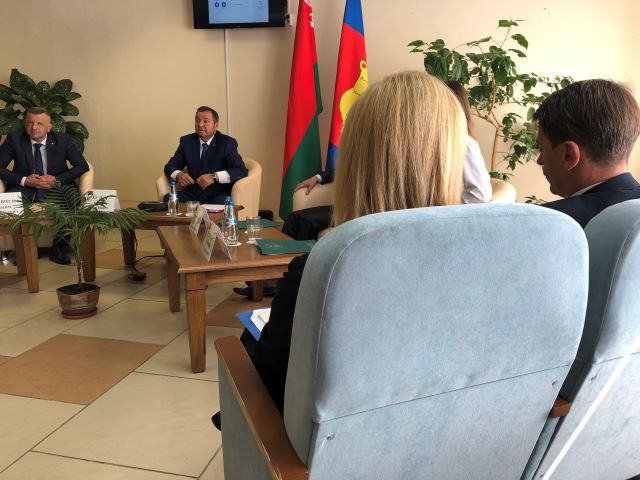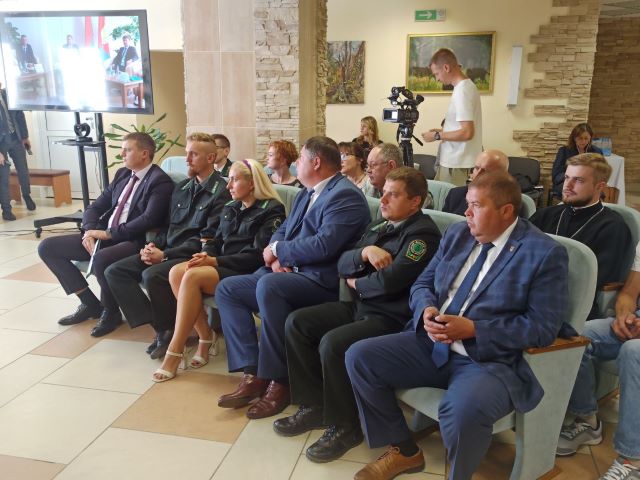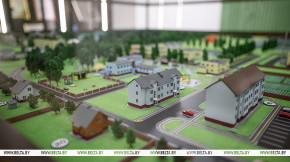Andrei Khudyk: I would like to believe that the opinions expressed at today's meeting will be heard not only in Belarus but also in the Republic of Poland
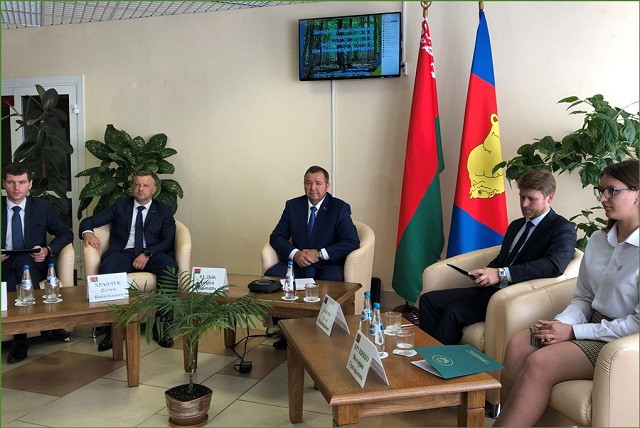
08.09.2023
On 8 September this year, Head of the Environmental Protection Agency Andrei Khudyk held an extended meeting of the Public Coordination Environmental Council of the Ministry of Natural Resources and Environmental Protection of the Republic of Belarus in the National Park "Belovezhskaya Pushcha".
A wide range of representatives of republican and regional public associations, scientific and academic circles, and the youth – professionals, environmental enthusiasts, and experts of international level – took part in the event of international significance.
In order to reach the largest audience, an online broadcast of the meeting was organised. Many people from different cities and regions of Belarus, as well as from other countries, managed to attend the meeting.
The meeting was held on the threshold of the question "Do you support the elimination of the barrier between the Republic of Poland and the Republic of Belarus", which will be discussed at the national referendum in the Republic of Poland on 15 October this year.
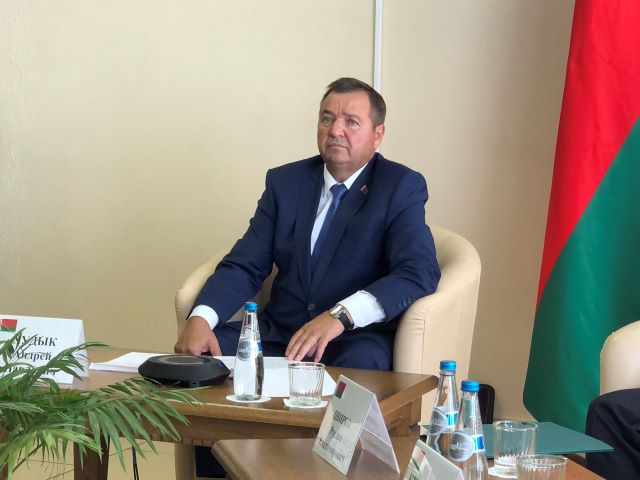
Opening the meeting, the Minister stressed that the unique site of Belovezhskaya Pushcha existed for 600 years before us and was not destroyed during the First or Second World Wars. However, in 2021, Poland adopted the Law on the construction of state border fences and thus "struck the first blow" to the once unified world heritage site.
"I would like to believe that the opinions expressed at today's meeting will be heard not only in Belarus but also in the Republic of Poland. After all, the future of Belovezhskaya Pushcha, our common history and pride, now depends on the Polish people. We call on the Polish people to take the right decision to demolish the fence and thus to take care of the future and not to be ashamed later on before the descendants", the head of the Ministry of Natural Resources and Environmental Protection of the Republic of Belarus set the tone for further discussions.
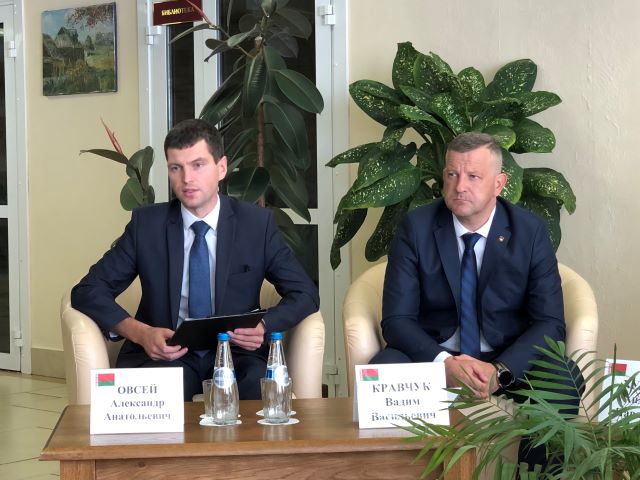
Speaking about the situation, Alexander Ovsei, Deputy Director General of the State Unitary Enterprise "National Park "Belovezhskaya Pushcha", emphasised the blatant illegality of the actions of the Polish side.
"The UNESCO World Heritage Committee accepted the obligations of the two countries to preserve the integrity of the forest and manage it in accordance with the criteria of its outstanding universal value, reflected in the nomination dossier", he informed. "The main principles of management are non-interference with wildlife, ensuring natural ecological processes, preserving the unique combination of habitats, and biological diversity of species".

Vadim Kravchuk, Deputy Chairman of the Brest Regional Executive Committee, spoke on behalf of the residents of the Brest region, bordering Poland. It was noted that when the issue of the construction of a barrier first appeared, it stirred up our society. In response, 75 thousand signatures were collected against the construction of the barrier in Belovezhskaya Pushcha.
"I am convinced that the word "Bialowieza" speaks volumes for Belarusians and Poles! It is a national symbol of natural beauty, traditions, resilience, and independence, both for us and for our neighbours. Together we restored it after the robbery destruction in 1919, together we renewed the Bison population, Andrei Khudyk stated. "Belovezhskaya Pushcha belongs not to us but to our descendants. These are not just words, an appeal, or a slogan. This is an undeniable truth that needs no proof!"
At the stage of construction of the barrier, Belarusian scientists projected a number of negative consequences for Belovezhskaya Pushcha and the ecosystems of the adjacent territories. Today, when the steel fence in the heart of the relict forest has already been established, representatives of Belarusian science take active measures to reduce the consequences of destructive actions of the Polish side.
"On the basis of a comprehensive analysis of potential threats to biodiversity and natural ecosystems, a monitoring system has been designed that consists of 8 monitoring routes with a total length of 39.1 km. As a result of the conducted studies, an emergency action plan was developed by the Belarusian side to minimise the negative impact of the barrier on the biodiversity and natural ecosystems of the National Park "Belovezhskaya Pushcha", Ruslan Tsvirko, Candidate of Biological Sciences, Deputy Director for Scientific Work of the Institute of the Experimental Botany named after V.F.Kuprevich of the National Academy of Sciences of Belarus said.
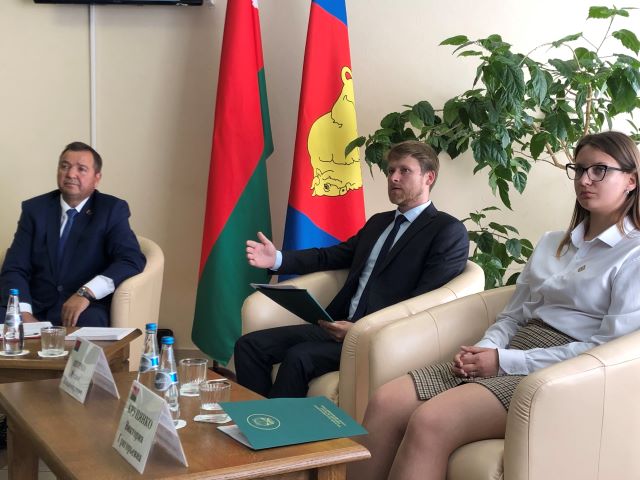
In the course of the meeting, representatives of the Belarusian and, what is noteworthy, Polish youth also expressed their position.
Victoria Krupyanko, Youth Ambassador for the Sustainable Development Goals, a student from Gomel, shared that the construction of the barrier that divided Belovezhskaya Pushcha into two parts caused complete bewilderment among young people. First of all, we do not understand how one country can make decisions regarding a WORLD HERITAGE Site on its own.
"Environmental colleagues, SDC Youth Ambassadors, young scientists, publicists, students, pupils, and all citizens of the Republic of Poland who are not indifferent to environmental issues, I appeal to you!", Victoria addressed the citizens of the neighbouring country on the threshold of the Polish referendum. "Support the elimination of the barrier between the two parts of the unified National Park "Belovezhskaya Pushcha".
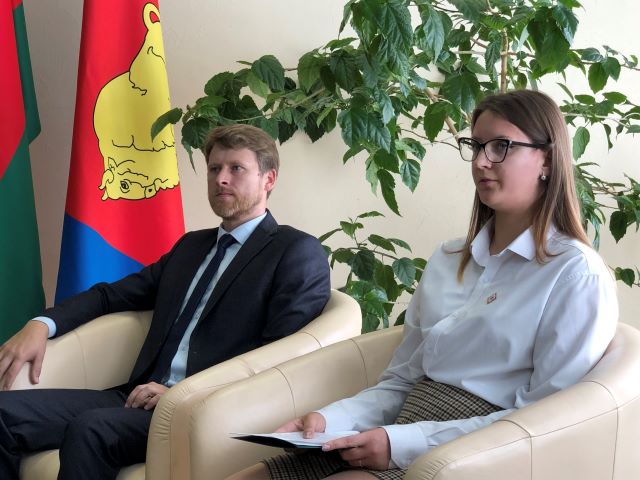
Pavel Alekso, Secretary of the Central Committee of the Belarusian Republican Youth Union, told that the youth of Belarus, members of the movement that numbers thousands of young people, painfully perceived the construction of the barrier and held many events and actions, expressing their protest against the criminal actions of Poland against the world ecology.
"We want the ties between our nations to develop and strengthen. This wall, this fence – today, it divides more than just a patch of forest – it divides two nations, not to mention the fact that a large number of ethnic Poles, our Belarusian citizens, live on the territory of Belarus", he emphasised. "We urge the Polish people to make the right decision and to vote in favour of clearing the lungs of Europe of the concrete foreign object!"
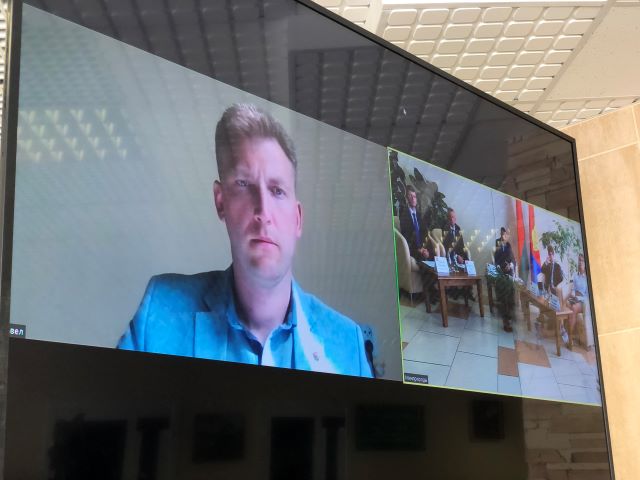
Representatives of the Belarusian youth were supported by a Polish public figure, journalist, and blogger Marcin Mikolajek who was forced to leave his homeland because of disagreement with the policy of the Polish authorities. The young man is sure that the number of his fellow countrymen who think sensibly and look at everything "with their own eyes" is steadily increasing every year.
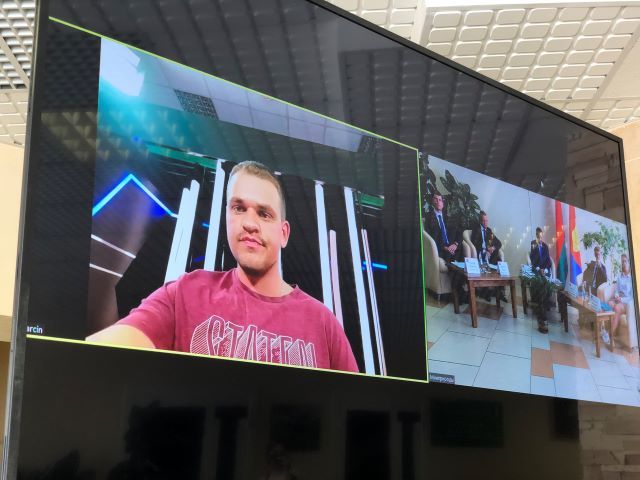
Apart from the main speakers, Vladislav Teterenok, Director General of the State Nature Protection Institution "National Park "Belovezhskaya Pushcha" and Olga Yanchurevich, Head of the Department of Zoology and Human and Animals Physiology of Yanka Kupala State University of Grodno, also expressed their opinion on the current situation.
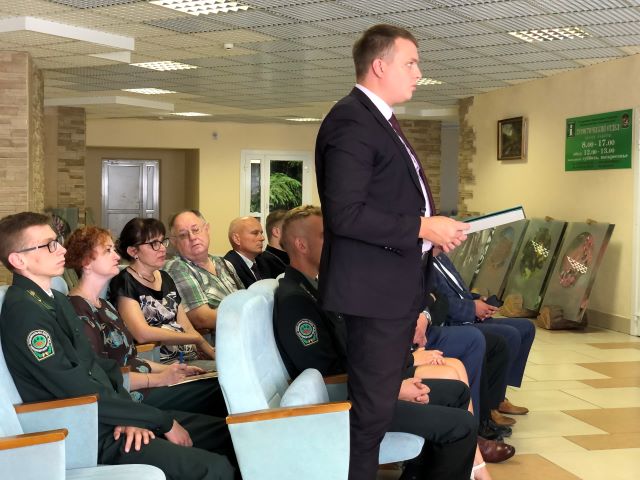
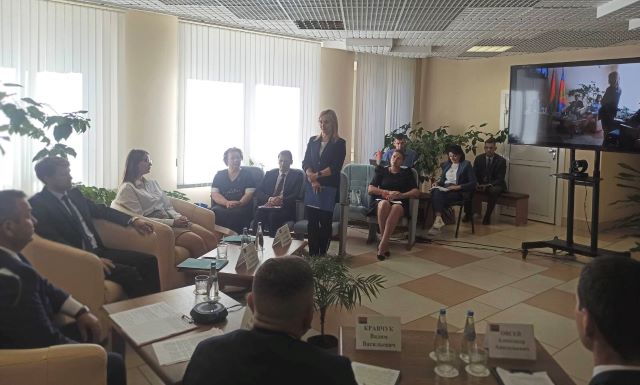
Closing the meeting, Andrei Khudyk summarised the discussion with the words: "For all of us, Belovezhskaya Pushcha is an indicator or marker of the well-being of the environment and thus the well-being of people. The Belarusians hope that the common sense of our neighbours will prevail and the unique natural site – Belovezhskaya Pushcha – will be preserved by joint efforts!"
